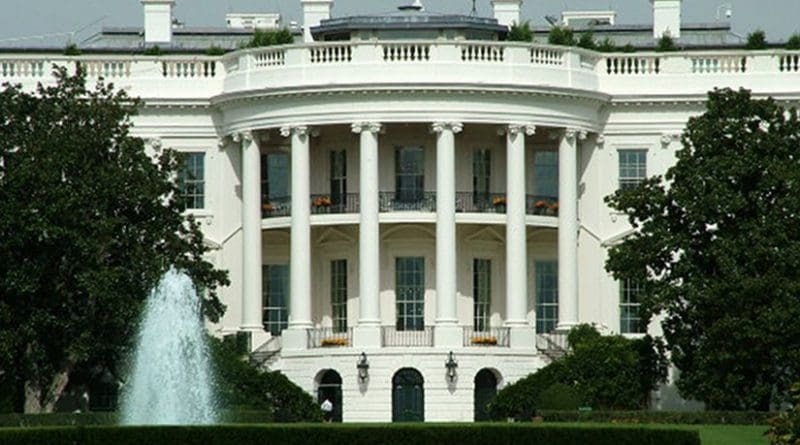Most Americans Want Government To Combat Climate Change
Sixty-five percent of Americans think climate change is a problem that the government needs to address, including 43 percent of Republicans and 84 percent of Democrats, according to a new survey from the Energy Policy Institute at the University of Chicago (EPIC) and The Associated Press-NORC Center for Public Affairs Research. While the major political parties have in recent years frequently clashed over the need to combat climate change, the Paris Agreement, and the role of coal and fracking in our energy system, Americans are largely in favor of efforts on all fronts to combat climate change.
But, how much Americans are willing to pay to confront the climate challenge varies widely. When asked whether they would support a monthly fee on their electric bill to combat climate change, 42 percent of respondents are unwilling to pay even $1. Twenty-nine percent would pay $20, an amount roughly equivalent to what the federal government estimates the damages from climate change would be on each household. And, 20 percent indicate they are willing to pay $50 per month. Party affiliation is the main determinant of how much people are willing to pay, not education, income, or geographic location. Democrats are consistently willing to pay more than Republicans.
“These findings confirm that there is a shift underway in how concerned all Americans are about climate change. It is becoming clear that people are seeing more and more that it is worthwhile to invest some money today to help reduce the odds of the worst climate damages,” said Michael Greenstone, director of EPIC and the Milton Friedman Professor in Economics, the College, and the Harris School. “At EPIC, we are working to better understand how climate change will affect human well-being. We believe this research and its careful communication are critical for aligning public opinion with the best available evidence.”
When it comes to support for policies to reduce greenhouse gas emissions, most Americans (46 percent of Republicans and 67 percent of Democrats) are in favor of federal regulations that would decrease U.S. coal consumption. If this question is paired with the assertion that such regulations have resulted in the loss of thousands of coal jobs, support wanes slightly from 54 percent to 45 percent. Democrats express the same level of support regardless of whether or not the question includes an assertion about job losses.
Despite low expectations that the United States will fulfill its obligations under the Paris Agreement–and even less confidence in China or India to meet theirs–the vast majority of Americans want the United States to continue working toward reducing greenhouse gas emissions even if other countries do not. That includes 77 percent of Republicans and 91 percent of Democrats.
“While climate change has in the past eight years become an increasingly divisive issue in American politics, we do find widespread agreement that the United States should be a leader on this issue globally,” said Trevor Tompson, director of The AP-NORC Center. “Americans aren’t particularly hopeful that any country will meet its obligation under the Paris Agreement, but more than 7 in 10 in each political party believe that the U.S. should at least try to make progress even if other countries do not.”
Of all the issues surveyed, the role hydraulic fracturing should play in America’s energy mix has traditionally been an issue where Democrats do not agree–with some believing it should continue playing a role under tighter regulations, and others believing it should be banned entirely. The survey found that just 13 percent of Democrats actually favor fracking, as opposed to 36 percent of Republicans. Nearly 4 in 10 Americans don’t offer an opinion at all, suggesting that additional education would make an impact. Of those who have an opinion, twice as many oppose the practice than support it.
At the same time, the poll finds that most Americans significantly underestimate the share of U.S. natural gas that is produced using hydraulic fracturing. Just 1 in 5 correctly say that fracking accounts for about two-thirds of the U.S. natural gas supply.
Some of the poll’s key findings are:
- Sixty-five percent of Americans say climate change is a problem the U.S. government should address. Another 12 percent say climate change is happening, but the government should not be involved in fixing it; 1 in 10 Americans say climate change is not happening; and 13 percent of Americans remain unsure if climate change is happening or not.
- When asked whether they would support a monthly fee on their electric bill to combat climate change, 42 percent of respondents are unwilling to pay even $1. Twenty-nine percent would pay $20, an amount roughly equivalent to what the federal government estimates the damages from climate change would be on each household. And, 20 percent indicate they are willing to pay $50 per month.
- Party affiliation is the main determinant of how much people are willing to pay to combat climate change, not education, income, or geographic location. Democrats are consistently willing to pay more than Republicans.
- Energy issues and climate change are important issues for about half of likely voters as they cast their ballot.
- A majority of Americans underestimate how much of the country’s natural gas supply comes from fracking, and many don’t hold strong attitudes about the practice. Among those who do have an opinion, twice as many oppose its use than support it.
- Only a quarter of Americans are confident that the United States will fulfill its obligations under the Paris Agreement to reduce greenhouse gas emissions.
- Americans have even less confidence in China and India meeting their obligations. But even if these countries don’t, 8 in 10 Americans say the United States should continue making progress to meet its own obligations.

